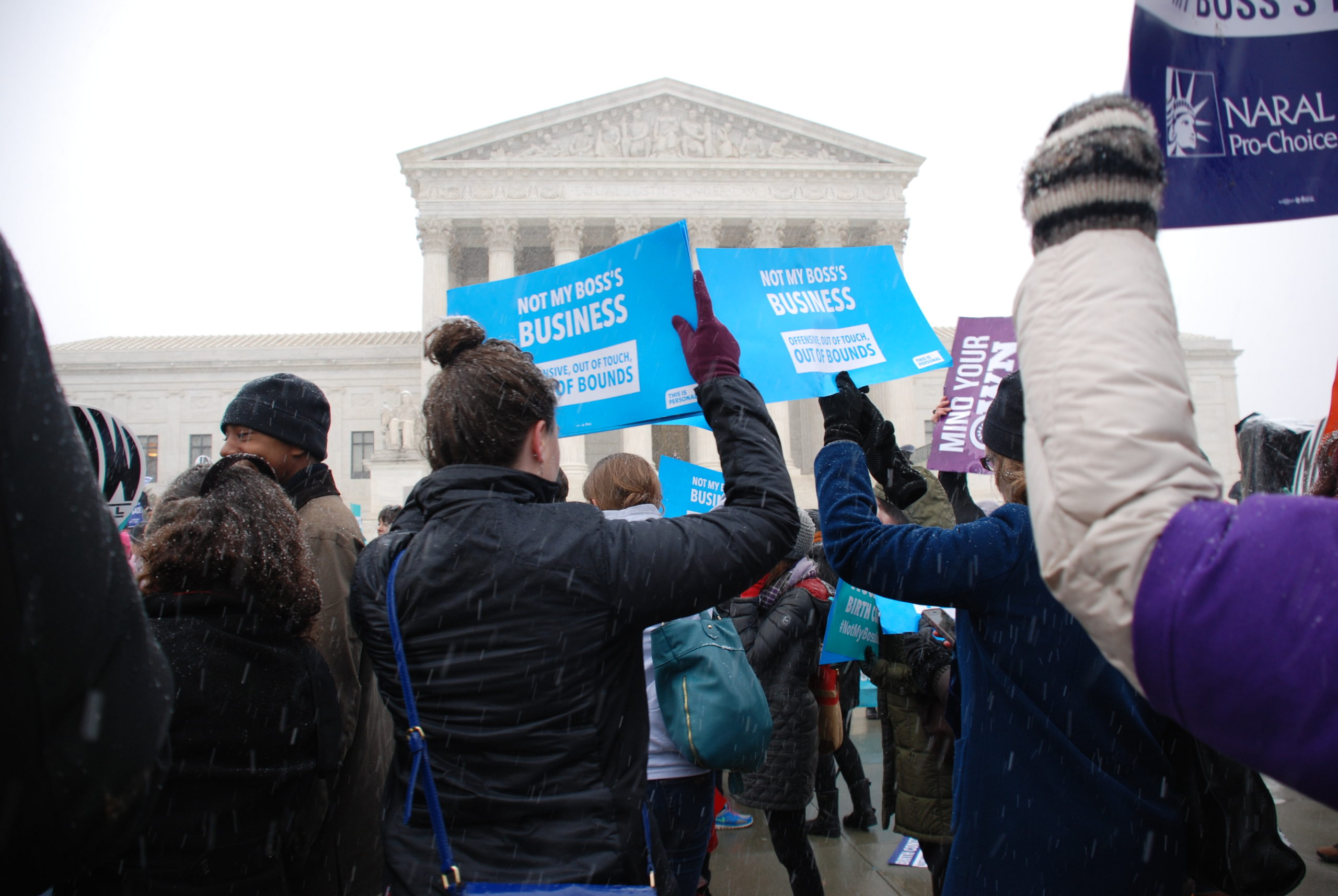Abortion rights, women of color, and LGBTQIA+ people are under attack. Pledge to join us in fighting for gender justice.
#WorstTBTEver: When There Were “Winners and Losers” in Health Care

 In the past week, constituents across the country—in Tennessee, Utah, California, Florida, and more—have shown up to Congressional town hall meetings to express their concerns about plans to repeal the Affordable Care Act (ACA), also known as Obamacare. Some Congressional members have been receptive, while others have not—in response to a constituent who asked about sick people under possible replacement plans, one Wisconsin member callously responded that “there are winners and losers” when bills are passed.
In the past week, constituents across the country—in Tennessee, Utah, California, Florida, and more—have shown up to Congressional town hall meetings to express their concerns about plans to repeal the Affordable Care Act (ACA), also known as Obamacare. Some Congressional members have been receptive, while others have not—in response to a constituent who asked about sick people under possible replacement plans, one Wisconsin member callously responded that “there are winners and losers” when bills are passed.
He wasn’t wrong. Prior to the ACA, there were real “losers” in health insurance:
- Millions of people were denied coverage or priced out of the health care market because of predatory insurance practices;
- Millions of people went without coverage because their employer didn’t offer it and the individual market failed them;
- Millions of people did not have access to high-quality coverage simply because of where they lived; and
- Women were indiscriminately charged more than men for the same coverage, were unable to access affordable birth control, and were not able to purchase insurance that even covered the services they need, like maternity care.
The ACA changed all of that. Now, the uninsured rate has hit a record low. More people are “winners” in health insurance thanks to the ACA—more people have health insurance coverage, more people have better access to preventive services, and fewer people are likely to forgo needed medical care due to cost.
But if the ACA is repealed, we will be thrown back to a time when there were real “losers” in health insurance—and there is a lot at stake for the potential losers in repeal. In this week’s #WorstTBTEver blog, we’re looking at the numbers to see who the losers will be and where they live.
Women overall
- Women overall have seen a steady increase in insurance rates since the implementation of the ACA—from 2013 to 2015, the number of women with health insurance coverage increased by 7.8 million, a growth rate of 10%. Many of these women now stand to lose that coverage if the ACA is repealed.
- States with the most to lose: Nevada, California, Kentucky, Florida, and Oregon have seen the greatest increase in health insurance coverage for women and thus, more women in these states are at risk of losing their health insurance if the ACA is repealed.
Women of color
- Women of color gained coverage at a higher rate under the ACA, narrowing the stark race-gap in health insurance. Yet because they have gained the most because of the ACA, they have the most to lose in repeal—women of color makeup 2/3 of the adult women who could lose health insurance if the ACA is repealed.
- States with the most to lose: Oregon, Washington, Vermont, Rhode Island, and West Virginia have seen the largest gains in insurance rates for women of color under the ACA.
Women who gained coverage under the ACA’s Medicaid expansion
- Since the implementation of the ACA, 3.9 million women ages 18–64 have gained Medicaid coverage, a growth of 29% nationally. States that expanded Medicaid under the ACA have seen the largest increases in Medicaid enrollment of adult women, and these women are at serious risk of losing coverage if the ACA is repealed.
- States with the most to lose: Nevada, Kentucky, Washington, Oregon, and Alaska, have seen the greatest increase in Medicaid coverage for adult women under the ACA.
Working women who gained Medicaid coverage
- Since the implementation of the ACA, 2.3 million working women ages 18–64 gained Medicaid coverage, a growth of 54% nationally. These women now stand to lose coverage if the ACA is repealed.
- States with the most to lose: Kentucky, West Virginia, Oregon, Nevada, and Washington have seen the greatest increase in Medicaid coverage for working women under the ACA.
We cannot go back to a time when women were losers in health insurance
The ACA has truly revolutionized health insurance, particularly for women. And it didn’t just help one group—it led to gains for women in Medicaid, women in the individual market, and women in employer-sponsored health insurance plans. We can’t let these politicians repeal the ACA and throw us back to a time when women were “losers” in health insurance.
See how many women are at risk of losing health insurance coverage in your state if the ACA is repealed here, and how many women are at risk of losing Medicaid coverage if the ACA is repealed here.
And don’t miss our other #WorstTBTEver blogs:
Post 1: When Millions of Women Fell into the Coverage Gap
Post 2: When Being a Woman Was a Pre-Existing Condition
Post 3: When Health Insurance was Out of Reach
Post 4: When Your Zip Code Determined Whether You Could Get Affordable, Comprehensive* Health Insurance
Post 5: When There Was an Unmet Need for Birth Control Coverage




